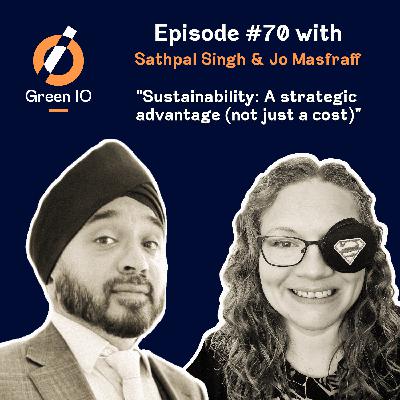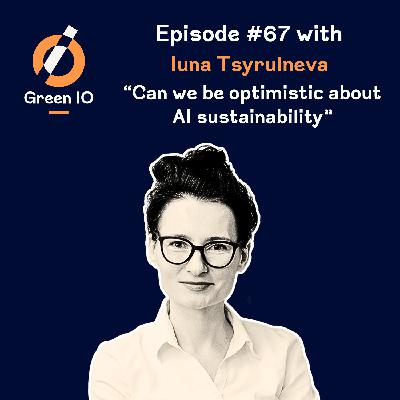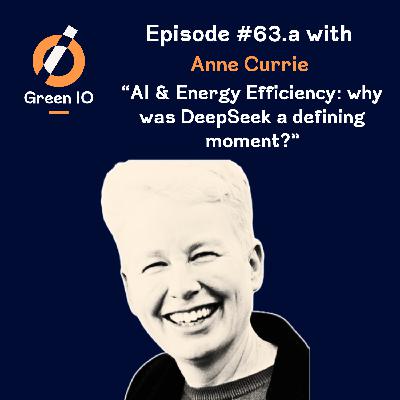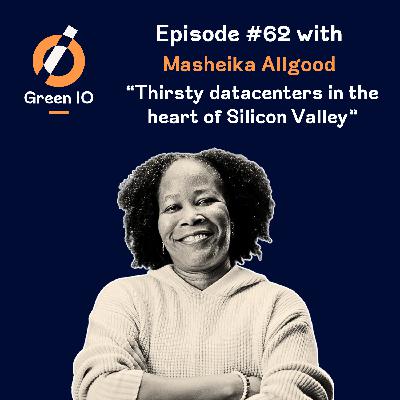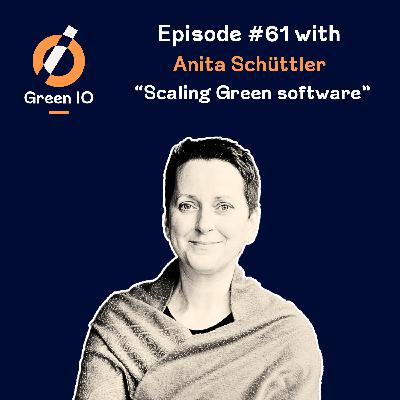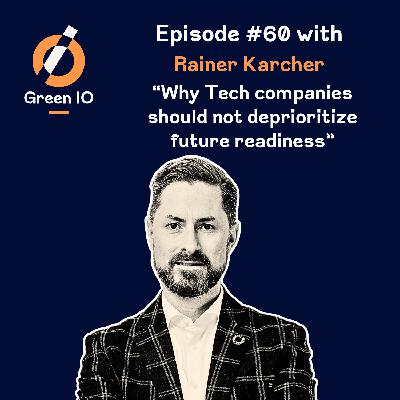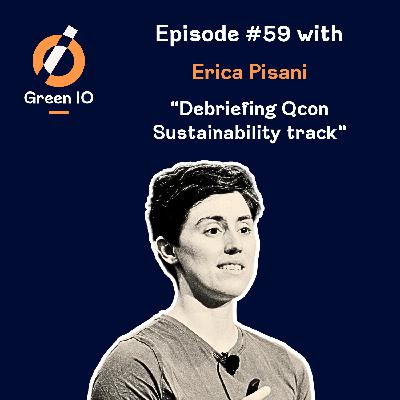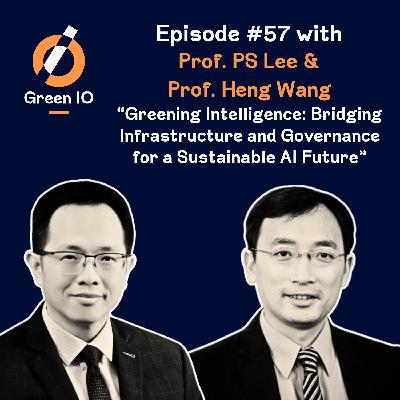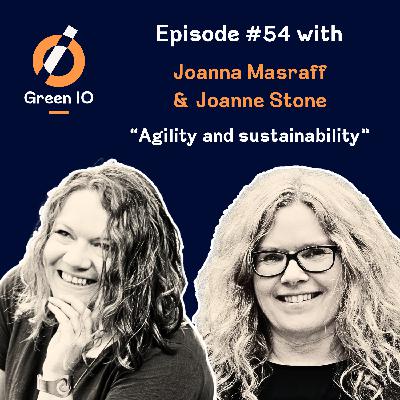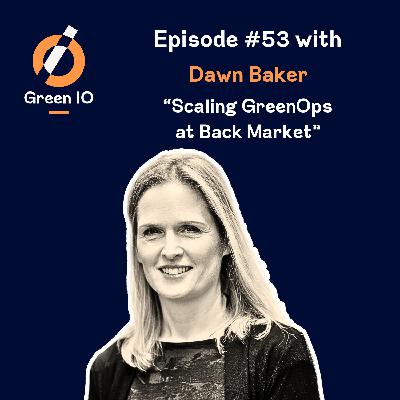#63.b AI & Energy Efficiency: just follow the money? with Anne Currie
Update: 2025-09-09
Description
Anne Currie is the co-author of the acclaimed O’Reilly book “Building Green Software”, a pillar of the GSF, a veteran in the Cloud Industry and also a SF novelist with her series of panopticon books.
Preparing her forthcoming keynote at Green IO London, she went all the way down into the rabbit hole of AI and energy efficiency. She investigated from OpenAi to DeepSeek and open source models, what a software developer using these models can and cannot do to reduce energy consumption, and so on.
In the second part of this episode, Anne Currie et Gaël Duez discussed:
- the East compute / west data Chinese strategy
- Pick the cheapest AI model today and ... tomorrow
- Learning from python to forecast trend in open source
- 4 questions to ask when choosing an AI powered product
- The case for Wright’s law in open source
And much more!
❤️ Subscribe, follow, like, ... stay connected the way you want to never miss an episode, twice a month, on Tuesday!
📧 Once a month, you get carefully curated news on digital sustainability packed with exclusive Green IO contents, subscribe to the Green IO newsletter here.
📣 Green IO next Conference is in London on September 23rd and 24th. Every Green IO listener can get a free ticket using the voucher GREENIOVIP. A small gift for your huge support. 🎁
Learn more about our guest and connect
📧 You can also send us an email at contact@greenio.tech to share your feedback and suggest future guests or topics.
Anne's sources and other references mentioned in this episode
- How China’s open-source AI is helping DeepSeek, Alibaba take on Silicon Valley
- Attention Is All You Need
- Powering China’s New Era of Green Electrification
- China continues to lead the world in wind and solar, with twice as much capacity under construction as the rest of the world combined
Transcript (auto-generated)
Anne (00:01 )
But the likelihood is you're doing most of your work through a hyperscaler. You're doing it through AWS. You're doing it through Google. You're doing it through. And the answer there is the answer that all of us in the industry have been saying for nearly 10 years now, which is that you've got to demand it. You've got to go to your supplier, your AWS and say, look, I want AI that runs on renewables. What is your story here? And how do I make sure that my AI is trained and at the inference runs on renewables? Because you can't really make that change yourself. You can only get them to make it. But if you do say I want it and this is part of my decision making process, they will make.
Gaël Duez (00:43 )
Hello everyone, welcome to Green IO! I'm Gael Duez and in this podcast, we empower responsible technologists to build a greener digital world, one bite at a time. Twice a month on a Tuesday, guests from across the globe share insights, tools and alternative approaches, enabling people within the tech sector and beyond to boost digital sustainability.
Do I really need to introduce Anne Currie to you? She's the co-author of the acclaimed O'Reilly book Building Green Software, a pillar of the Green Software Foundation, a veteran in the cloud industry, and also a science fiction novelist with a series of Panopticon books, And we will have the honor of having her as a keynote speaker at Green IO in London on September 24th, where she will talk about AI and its energy consumption. And there's something to know about Anne. She's a thorough speaker. When you give her a bone, she will go all the way down into the rabbit hole. This is exactly what happened on this topic of AI and efficiency.
This is the second part of this episode. In the first part, Anne provided quite a lot of context on the generative AI momentum and also why DeepSeek was a pivotal moment in AI. Not necessarily because of the energy efficiency of the model itself, but for the interest it raised on the topic. The second feature, which made DeepSeek's launch so pivotal, was its licensing policy. DeepSeek being an open source model, it led to many implications for potential future efficiency gains. But these implications don't come without issues.
Anne (02:31 )
DeepSeek has not solved the problem. There are two things that we need to be thinking about. The first is that efficiency will mean that we just use a lot more of it, which doesn't necessarily mean there's a problem. But it doesn't necessarily mean that in and of itself on its own is going to solve the problem. And that's the usual thing that always comes up, Jevons paradox. Now, I'm a big believer that Jevons paradox could be fixed and Jevons paradox is the definition of economic growth in many ways. But ⁓ I think there's a different problem here that will be solved in a different way, which is to go back to what I said before, hyperscalers gonna hyperscale. That's the AI scaling law where AI will just keep getting better as you pour more more money into it did not go away. We decided, know, a certain enterprises, vendors said, you just don't need to keep going up this. We're happy here. Just let us off and we'll take the roots, the DeepSeek roots and all of the models that have been spawned by DeepSeek. We'll take that route because it's good enough now. And we don't need to go, we don't need to keep going up. But the hyperscalers, the OpenAlias of the world, the Googles of the world, good simultaneous translation in headsets was never going to be enough for them. They wanted, and they've always wanted, or have wanted since the AI scaling laws became obvious to them, they wanted AGI, artificial general intelligence. They just want more and more clever models.
Gaël Duez (04:16 )
Yeah, but that's. Sorry to interrupt you, Anne but that's absolutely fascinating the way you present things from more a marketing perspective than a technical perspective. Because if brute force approach was the best interest of hyperscalers, because hyperscaler, the scale, as you say, the moment we've actually proved that a significant chunk of the market doesn't want more, which threatens the very essence of the business model. Could we allow ourselves to say that they elaborate something to justify the endless growth to capacity.
Anne (04:57 )
Yeah, so We're now in a space race, a kind of semi-militaristic race for who's going to have the biggest artificial brain. as a sci-fi writer, this is just astonishing. This is still the idea that if we can turn electricity into thought, and we can turn enough electricity into some amazing thought and it will just become clever and clever and clever. And the first person who gets that will have the biggest brain working for them, although will it be worth it? Anyway, whether or not this is the right thing to do, I would suggest that it isn't, but I don't think that any of ours is going to stop that happening. The hyperscalers, Google, OpenAI are going to compete to produce this enormous at X, X AI going to keep competing to produce this this big brain, this big artificial brain. ⁓ But it one thing has happened that I think we absolutely do need to talk about here. Sorry, I realized there's so much stuff here. But anyway, the ⁓ other thing that's happened is that, yes, we've got all of this interest in just scaling up forever and producing the mega brain. But we've also got now multiple strategies in play for how that, so the goal is the mega brain. There are multiple strategies out there for how that mega brain will be produced. Some of them are aligned with the energy transition. Some of them are alignable with the renewals. And some of them are currently at the moment not, but even where they're not, there are knock on the benefits for the renewable ⁓ transition. So I would say the three key ⁓ strategies are the American strategy brute force. They've started to build ⁓ gas-fired power stations as well as started looking to nuclear and stuff. So the American strategy is a green back strategy for it's, they just, have all the money in the world, you know, they are going to spend it. So they'll spend money to win. And that is not in any way aligned with the energy transition. But I think there are two other interesting strategies going on, two global kind of geopolitically huge strategies going on. The next is the Chinese strategy. And China have been very clear publicly clear about wh
Comments
In Channel


